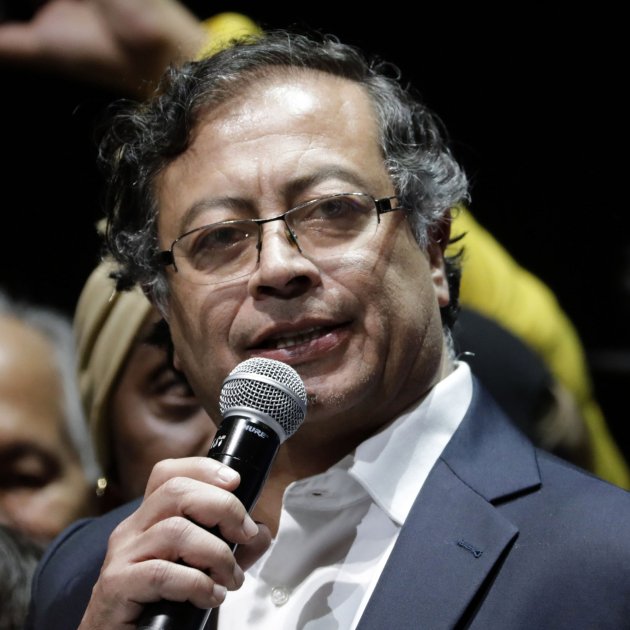"We are not going to betray the electorate that has shouted at the country, at history, and called for change from today.” Those were the determined words of the new president of Colombia, Gustavo Petro, as he spoke to supporters following his historic election on Sunday night as the first left-wing president in the history of his South American country. A little under five years ago, on October 1st, 2017, the former mayor of Bogotá was in Europe where he witnessed another electorate making a call for change: it was Catalonia, and the day of the 2017 referendum on indepedence from Spain. Gustavo Petro was present as an observer, not a protagonist, but he spoke out clearly about what he saw: "I am in Catalonia as a witness to their independence referendum," Petro wrote on his Twitter account on September 30th, 2017, the day before the vote. From social media, the man who has now become the president of Colombia, narrated the repression against Catalans before, during and after the 1st October vote. Following his victory in Colombia, some Twitter users have recalled the support given by the new Colombian president during his visit to Catalonia.
In his tweet on the eve of the referendum, Petro warned his followers that the "Spanish government is repressing the referendum", referring to the "arrests, raids" that had taken place over previous days (in particular on September 20th). Soon after, however, Petro ran into the police violence that occurred in streets and schools centres all across Catalonia as Spanish security forces set to prevent the public from voting. On October 1st, the current Colombian leader uploaded several videos he had filmed in the city of Barcelona. In one of them the Colombian president enters a school that was being protected by a large crowd. The text that accompanies this recording states: "700 wounded, traditional left and Spanish right reject them. But here is a citizen democracy. Catalonia."
Throughout the day on October 1st, Petro tweeted profusely about all he saw and felt during the day. At that time, he was moved to consider the similarity of the repression he saw with the violence unleashed in the military uprising which led to the civil war and the Franco regime. "Spain has become a dictatorship in Catalonia. At the moment helicopters are flying above us. Will 1936 be repeated?" he asked at 11:54 in the morning on referendum day.
His reporting to the world on the repression that was taking place was not limited to just the referendum days. Petro continued to voice his concern for the actions of the Spanish state in Catalonia carried on. For example, on October 21st, 2017, the current Colombian president quoted a news item announcing Mariano Rajoy's decision to oust the government, saying, "And they say it's a democracy."
Solidarity from the Latin American left
Petro's victory this Sunday has been compared by some analysts with that of Gabriel Boric, the current president of Chile, who was elected last December, in another recent victory for the Latin American left. The differences between the two leaders are many, but both embody this new rise in the left and both have shown their solidarity with the Catalan people. On October 1st, Boric also took to Twitter to express his support for Catalonia, homeland of his mother, commenting on the "shocking" images of police violence he had seen. "A firm hug from Chile to the Catalan people. More democracy, less repression," he demanded.
